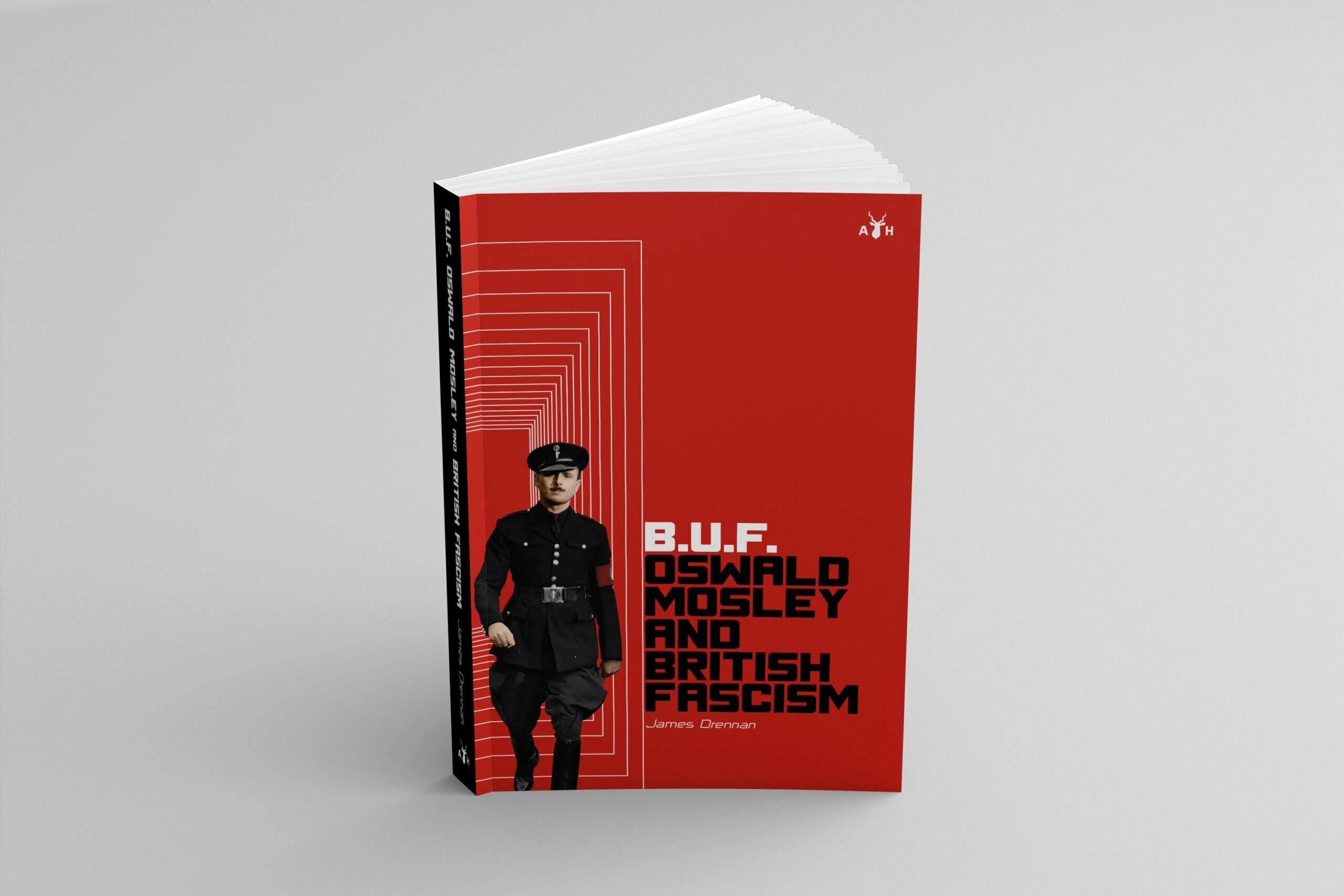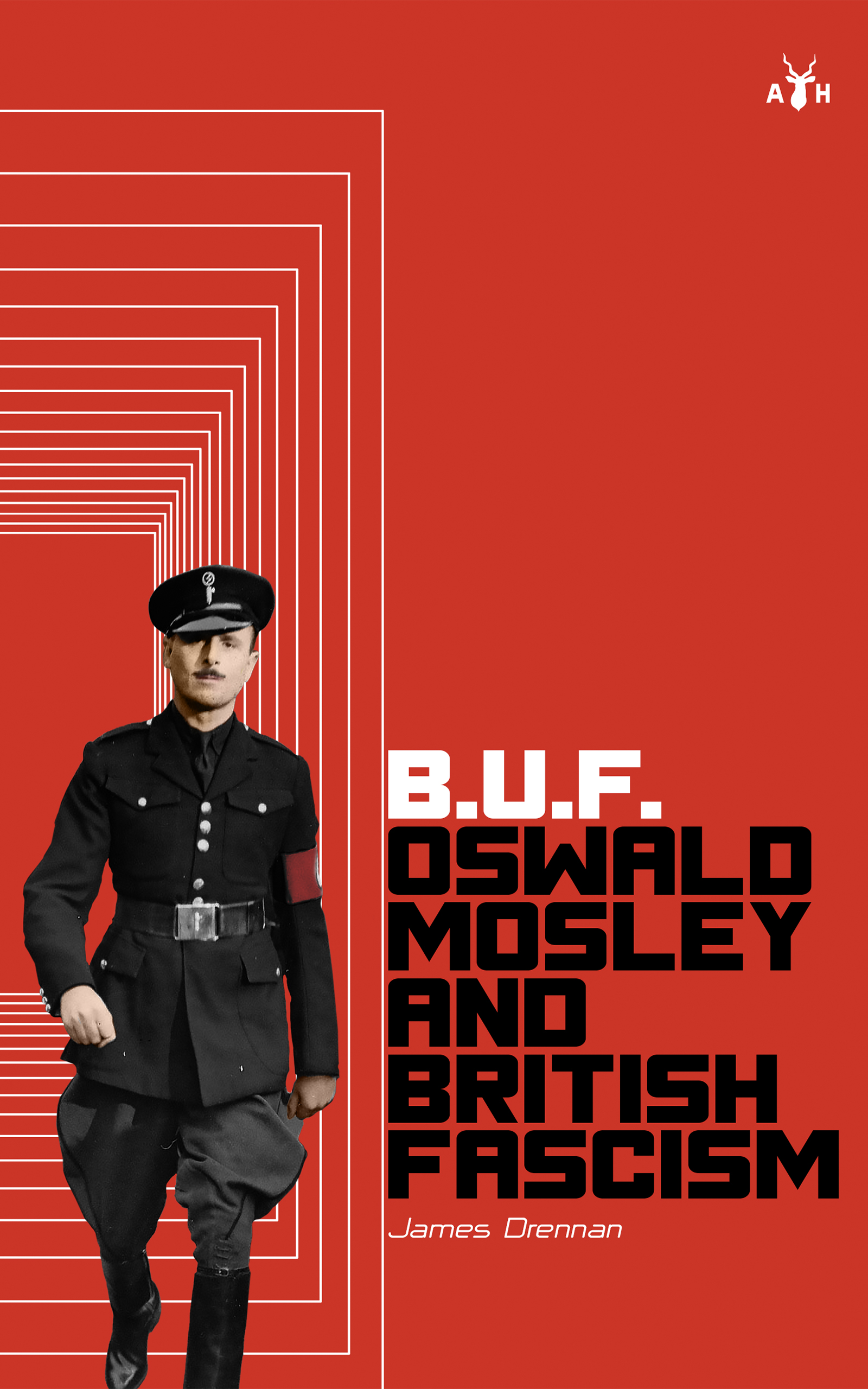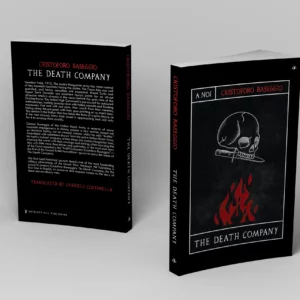B.U.F. Oswald Mosley and British Fascism by James Drennan
$7.45 – $21.89
BUF Preview234 pages, 5.5″x8.5″
Purchasing internationally? Purchase from AbeBooks: Click here to order
—
Oswald Mosley was an English aristocrat who made his mark on British politics as the founder and leader of the British Union of Fascists. A man of intellect and determination, he rebelled against the establishment of his day. He rejected the authority of those who he believed acted not as shepherds of their people but their false friends, decrepit and slinking middle managers for international capital and finance.
James Drennan’s B.U.F. Oswald Mosley and British Fascism is an internal history of the British Union of Fascists which describes Mosley’s dramatic journey across the English political spectrum, culminating at the formation of Britain’s foremost Fascist movement. It delves into contemporary politics, condemning the political class with dry, acrid wit; and into English history, describing the ruin brought by the rise of capitalism and democracy. Drennan describes Fascism as a spiritually “pan-European movement,” representing equally “an economic revolt against the obsolete capitalist system, and a spiritual reaction against the materialist and internationalist concepts of Marxism.” It was, in his analysis, the heroic challenge of the men of his age to the “pessimism” of Spengler, an elite effort of the European civilization to overcome its prophesied twilight and create a new and better world. The fact that in 1934 such predictions could be made, dazzling in their unalloyed hope and confidence, appear all the more tragic in hindsight, but the legacy of the men described in this book will not be forgotten.
Antelope Hill is proud to republish Drennan’s B.U.F. Oswald Mosley and British Fascism, a work of the utmost historical importance. The preservation of books like this is key to the continued battle to defend Britain and Europe from all those who seek to destroy them.
Paperback ISBN: 978-1-953730-21-3
Ebook ISBN: 978-1-953730-27-5
| Weight | N/A |
|---|---|
| Dimensions | N/A |
| Format | eBook, Paperback |








Zackary Morales –
For six chapters of the book you’re given a background in Oswald Mosley’s life as a member of British government in the early 1920’s. The important aspects to learn are how Mr. Mosley became aware of the inability to solve the major issues of modernity through democracy, who democratic government truly serves (and is orchestrated by) and ultimately how he evolved to become the archbishop of British Fascism. Below these biographical details about the man, what can also be found, in a way, is a theoretical justification on how Fascist action in government would be superior to the gesturing and inefficiency of democratic governance. Besides a background on how Mosley ended up where he made his moment in history, what also is said about him is that of his character. Beginning as a Tory and progressing to the socialist wing of the Labor party, Mosley was routinely praised by his peers in government and the press for his abilities as a leader. “Mosley was a figure of individual strength & purpose… a brilliant & searching mind, a sympathetic temperament.” – The Nation, 1922 and “…the stuff of which Prime Ministers are made” – Lord Beaverbrook. My personal summary of him would be that he was a genuine, pragmatic, and diligent man who became a Fascist not due to megalomania or ulterior motives but personally forged by the evolution of his experiences, his view of the historical process and the absolute unfeigned understanding of what truly was best for the whole of Britain.
Again, for six chapters of the book an excellent outline of who and how Oswald Mosley was is given. Yet the most important aspect of this book are the theoretical contributions learned from the last three chapters. Extremely important was the intellectual wrenching out of my cut-and-dry American understanding of historical process, power, and the conception of what a State is or should be. Being given a lens to view history through is something I don’t think many people have. Not to come off as big brained, I simply mean to say it isn’t common sense to understand that understanding history requires a method of analysis. For me, realizing that history was not made based off of morality but instead of power struggles between elites of a society feels like an out of body experience in a way. Seeing the development to democracy in the West not childishly as “the right thing to do” but instead as the process in which an embedded capitalist class was able to remove hindrance (monarchy and mercantilism) to their interest.